Thank you for following Uncanny Landscapes. Here’s a new episode of the podcast; an interview with Lally MacBeth about her new book, The Lost Folk. As you know, this is a free project, both newsletter and podcast - nothing is paywalled. If you're able to support my work through a donation (aka paid subscription) - thank you!! I truly appreciate it. And if you're not, perhaps you can support by telling a friend (or two, or 100) about the Substack's free subscriptions and accompanying podcast.
The podcast (and all back ‘issues’) are also available at:
https://uncannylandscapes.podbean.com/
… and on most podcast platforms. As always, books, records and events ‘n’at here: https://linktr.ee/oldweirdalbion
Links:
Lally Macbeth
The Lost Folk at Faber
Stone Club
The Folk Archive
Woodchester Piano Company
Lally MacBeth is an artist, writer and curator whose work will be very well-known to many of you. As co-creator (with her partner Matthew Shaw) of The Stone Club, Lally’s been on the podcast before; and as curator of The Folk Archive on Instagram, she’ll be known to even more of you for her broad approach to British folk culture.
Which is where her new book The Lost Folk (Faber & Faber) comes in. The Lost Folk is a key document for the always-shifting ‘folk revival’ - a cultural movement that seems to be ever evolving in Britain. Folk revivals often begin with a wide-angle lens that takes so much into account, and narrows as the revivalists grow. This time feels different, and The Lost Folk is here to help make sure we remember that the roots of folk culture spread throughout this land, to all of its people and all of its places - often in ways, traditions and customs that might not seem ‘folk’ at first.
We’ve heard discussion of a similar approach before: Stick in the Wheel’s viewpoint takes a similar lens to folk music from the London environment, whereas Lally MacBeth is looking at urban and rural folk culture outside of the music. It all adds up to a very exciting new spin on a purposefully very old wheel.
The music on this episode isn’t ‘folk’ in the musical sense, but I think comes from a sensibility that ties in: Woodchester Piano Company’s album Ambient Tea Party is inspired by the landscapes of Sussex, Cornwall and more. And why can’t ambient music be part of a folk tradition, even if that tradition is evocation of the Suffolk landscapes of Brian Eno rather than Martin Carthy’s guitar?
I hope you enjoy this conversation, and be sure to pick up The Lost Folk and Ambient Tea Party to keep it going in your own seashell-covered grotto.







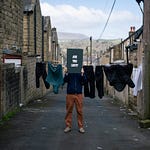
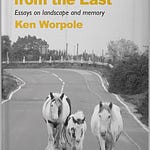
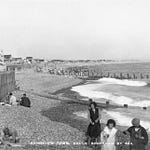
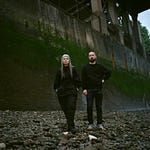
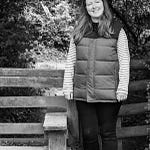
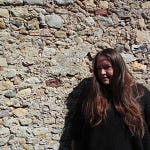
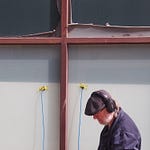
Share this post